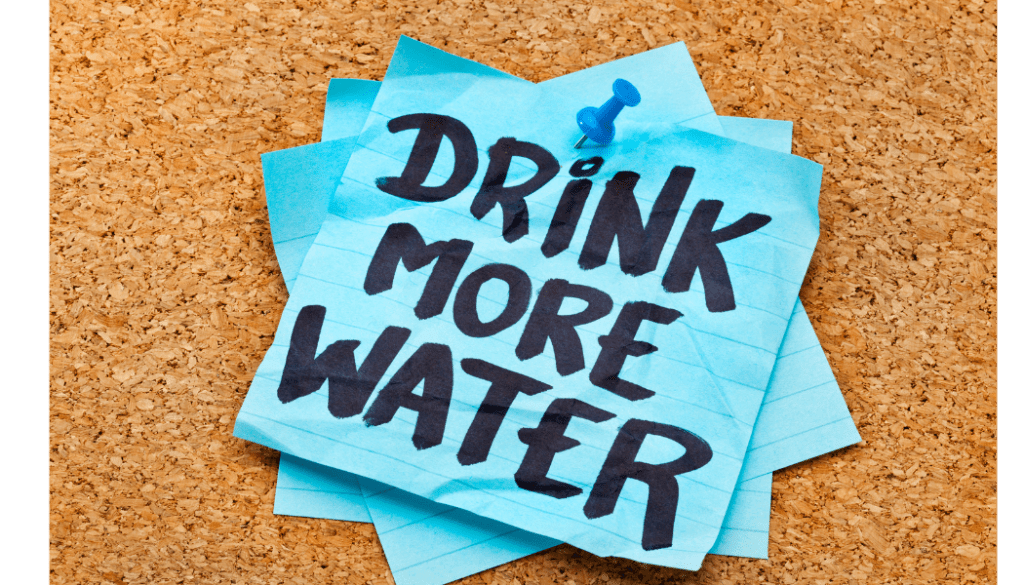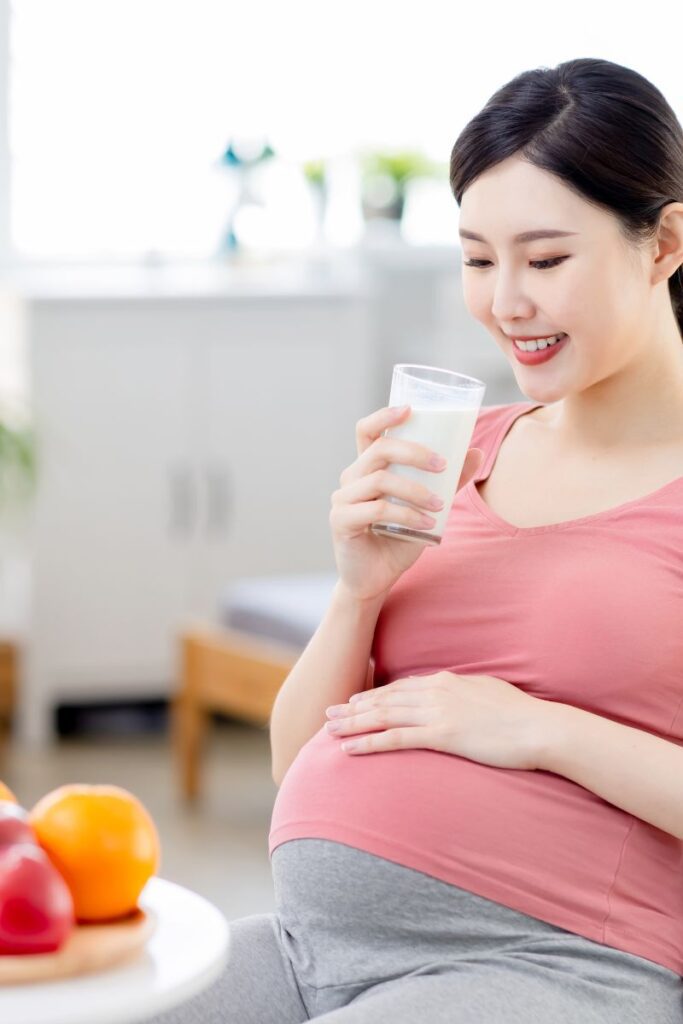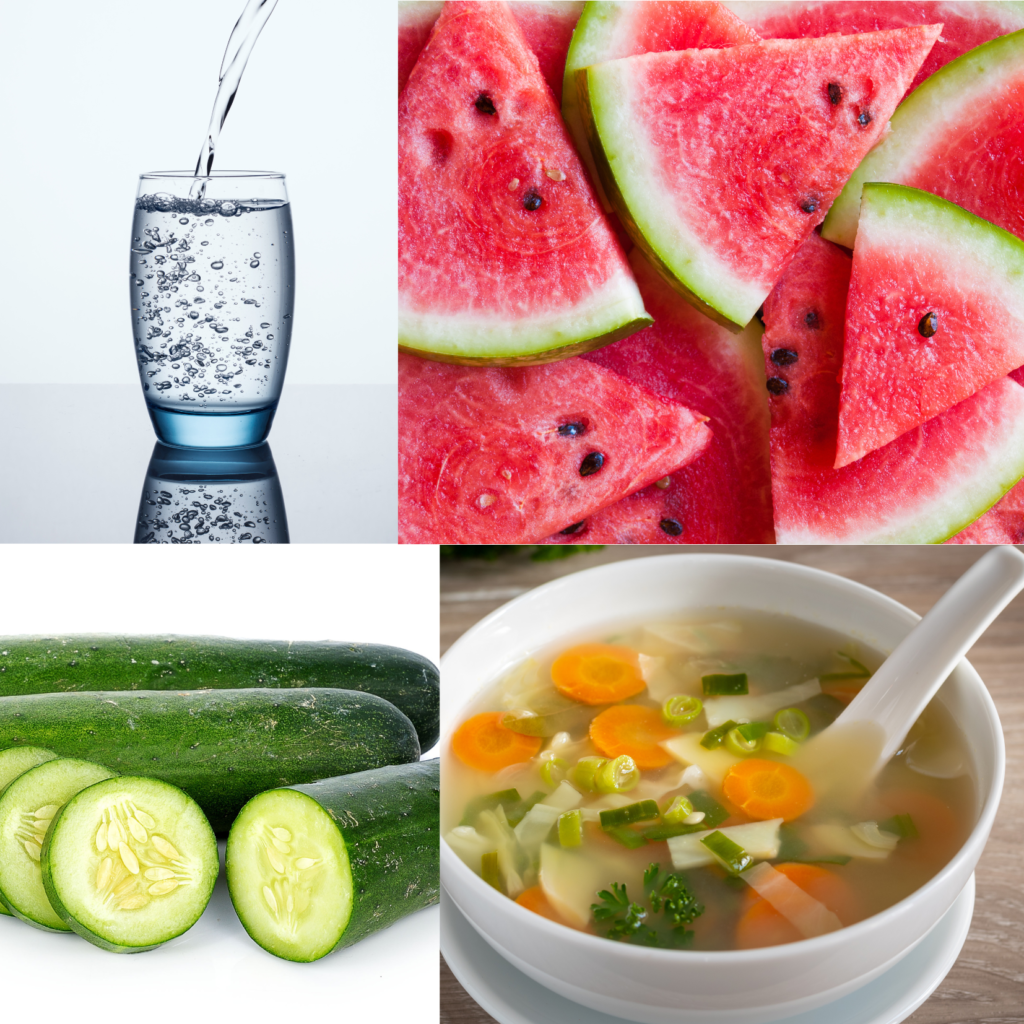Staying hydrated during pregnancy is very important. But with all the demands on the body while growing a tiny human, drinking enough water is not always that easy. Dehydration can occur and, with it, some problems.
As a doula, I have seen many people end up at the emergency room, especially during the last few weeks of pregnancy, due to symptoms of dehydration. Today we discuss the importance of hydration and how to get all the fluids you need for a safe and healthy pregnancy.

The Importance of Hydration
We need water to support life and well-being. After all, our bodies are about 55% water.
Water is essential for many reasons, including:
- A vital nutrient to the life of every cell
- Regulating our internal body temperature
- Metabolizing and transporting carbohydrates and proteins for nourishment
- Flushing waste from the body
- Acts as a shock absorber for the brain, spinal cord, and fetus
- Forms saliva
- Lubricates joints
Hydration is even more critical during pregnancy as it is needed to support two lives.

Water Helps:
- Make the amniotic fluid in the womb that keeps your baby safe
- Proper development of the placenta
- Produce and support extra blood volume needed for your baby
- Improve your digestion
- Carry the extra nutrients you’re eating
- Remove waste products for you AND your baby
- Prevent preterm labor
Symptoms of Dehydration
The symptoms of dehydration in pregnancy are similar to those of dehydration at any other point in our lives. But, while it is not harmful to be a little dehydrated when not pregnant, we need to be much more careful during pregnancy.
Once you feel thirsty, you are probably in the late stages of dehydration. Early signs of dehydration include moodiness, sleepiness, and headache. An obvious sign of dehydration is less frequent urination. Another reliable indication that your body needs more water is the inability to control body temperature and feeling overheated. You may experience a dry mouth and tongue as you become more dehydrated. Upon standing, the feeling of a rapid heart rate is another sure sign that your body needs more water.
One of the signs of dehydration unique to pregnancy is uterine contractions. At Orlando Doulas, we are often contacted by clients late in the third trimester, experiencing mild contractions and thinking they may be in early labor. Most of the time, after drinking a big glass of water or juice and resting, the contractions stop. Sometimes people even head to the hospital thinking they are in labor and are sent home in frustration after finding out its just dehydration. Once given a bag of IV fluids, contractions cease.
While mild dehydration isn’t good, drinking some water is usually the easy fix. However, severe dehydration is extremely dangerous and should be treated by a medical professional.
Signs of severe dehydration are:
- Feeling extremely thirsty.
- Dry and brittle lips.
- Being irritable and confused.
- Not urinating enough or passing dark or brown urine.
- Sunken eyes.
- Shriveled skin.
- A fast heartbeat.
- Low blood pressure.
- Contractions
The Risks of Dehydration During Pregnancy
Dehydration is never good, but during pregnancy, it carries additional risks such as:
*During pregnancy, blood volume increases significantly. If you become dehydrated, you risk the possibility of low blood pressure.
*The placenta and amniotic fluid require water. If you become dehydrated, you risk the chance of them not developing correctly and complications in later pregnancy.
*Our bodies require extra protein and minerals when growing a placenta and a tiny human. These extra proteins can leave behind toxic by-products when we become dehydrated.
*Many vitamins are water soluble, and without enough hydration, the body will not absorb the necessary vitamins, which could cause complications for the baby.
*Without proper hydration, your body may not produce enough breast milk.
How to Stay Hydrated During Pregnancy

The amount of water needed varies from person to person, but we need approximately six to eight 8 oz glasses daily. This amount includes the amount of water we get in our food. During pregnancy, aim for six to eight 8-ounce glasses of fluids daily on top of your foods. That counts water, milk, juice, soup, and other liquid. During the second and third trimesters, you may feel increased thirst. Increase your water intake accordingly. Try warm water or mild teas if you suffer from nausea during pregnancy. If drinking enough water is still hard, try taking small sips frequently.
Avoid overeating protein, sugar, or salt, as this can make you urinate more frequently. But be sure not to cut out salt altogether, as it helps to absorb the water you drink. Avoid caffeine, as it is also dehydrating.
Eat hydrating foods like fruits and soups for extra hydration.
Wear light, breathable clothes and reduce exercise to avoid becoming overheated and increased sweating.
Water is responsible for sustaining all life. It is never more critical than when supporting you AND your unborn baby.

